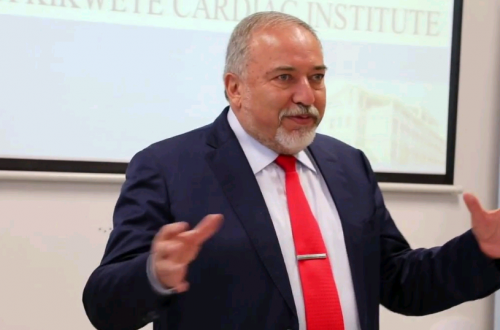This is a guest post by James Brandon @thejamesbrandon
De-radicalisation rarely occurs with a bang, with an instantaneous “Eureka!” moment of self-awareness. More often, it occurs over a period of time, beginning with much questioning and doubt, followed by a physical disengagement from one’s radical affiliations, followed – in some but not all cases – by a comprehensive re-alignment of one’s values.
Tommy Robinson says he has now renounced the English Defence League (EDL) and, by extension, some of his former associates. This physical disengagement from the group and its members, likely only partial at present, is therefore not the end of a de-radicalisation process but is rather the first small step of a much longer spiritual and intellectual journey.
Although the usual coalition of left-wing columnists, hard-right Islamists and closeted academics have already tried to discredit this development, Robinson’s public resignation from the EDL is a important and humiliating blow to the group, one of the most ‘successful’ far-right street movements in recent British history. Robinson was a rare creature among right-wing extremists; an articulate and well-presented young man who as comfortable in a television studio as on the streets haranguing supporters through a megaphone, as well as being an effective organiser and figurehead for the movement.
That said, Robinson’s next steps are even more crucial; his supporters at Quilliam and elsewhere need to sure that public renunciation of the EDL as an organisation is followed by moves to renounce their ideology in full. Robinson needs to continue the dialogue that he has already begun with a range of Muslims, in order to better understand the nuances of the community that he has systematically attacked and denigrated. Only then will his rejection of the EDL become truly decisive.
A good start would be for him to meet victims of the anti-Muslim violence and hatred stirred up by the EDL. A better understanding of the hurt that he has caused will lead Robinson, in time, to make a more convincing apology for his past actions.
Quilliam should also be encouraging him to meet with a range of Muslims, including gay, female, Shia, liberal and other Muslims, who are the primary victims of Islamism’s war on heterodoxy; he needs to see that it is not only white people but also Muslims who are the victims of Islamists like Islam4UK, whose agitation in Luton helped lead to the creation of the EDL.
Quilliam should introduce Robinson to Google’s network of ‘Formers’ – extremists who have renounced violence and radicalism. Members of that group, like ex-neo-Nazi TJ Leyden, can play a key role in talking to him, opening his eyes to new ideas and helping him to transition from rabble-rousing ex-EDL leader to a genuine democrat. As well as helping shape his ideas, these formers, who include ex-gang members from similar street backgrounds as Robinson, can also provide him with a new network of friends and allies; this will be vital in helping to break away from his EDL ex-associates and making his disengagement from the EDL permanent.
In addition, Robinson needs to be helped to find a new role; by all accounts his EDL activism has been the focus of his life. He needs to find new pursuits and interests, and to reconnect with his family, to fill the void created by the loss of his EDL ‘surrogate family’. Without such support networks and a fresh sense of purpose, he will risk drifting back to his old, unreformed, friends.
Of course, some people will want Robinson, and his backers at Quilliam, to fail, almost as if they would prefer the present status quo to continue. Indeed, a cynic could point to the fact that some prominent critics of his rejection of the EDL, like Nottingham University academic Matthew Goodwin, the recipient of almost £100,000 of UK government funding to research the far-right, have a vested interest in the survival of the EDL.
Some scepticism towards Robinson’s move is of course natural; his ‘change’ may be a tactical ruse to ‘mainstream’ his extremism, as some fear. Alternatively, he may not be fully de-radicalisable; not all extremists are. But, while remaining sceptical and cautious, we should welcome the possibility that his professed willingness to reform is genuine. The EDL was a vile and disruptive presence, frightening ordinary Muslims and providing easy ammunition for radical Islamist recruiters wanting to depict the British people as the enemy. With the departure of Robinson, its most able leader, we may now have an opportunity to destroy a movement that has been both troublesome and stubbornly enduring.
Quilliam should therefore not rest on its laurels; a long-term strategy needed to ensure that Robinson becomes not just an ex-EDL leader, or worse the founder of a new EDL-lite, as some fear, but rather a champion of genuine liberalism and moderation. The history of left and right extremist movements is replete with the narratives of those who turned their backs on hatred and intolerance; we should all support Tommy Robinson’s professed willingness to join their ranks.
James Brandon is an Associate Fellow at the International Centre for the Study of Radicalisation (ICSR) at King’s College London. He was Quilliam’s Director of Research and Communications from 2008 to 2011.


